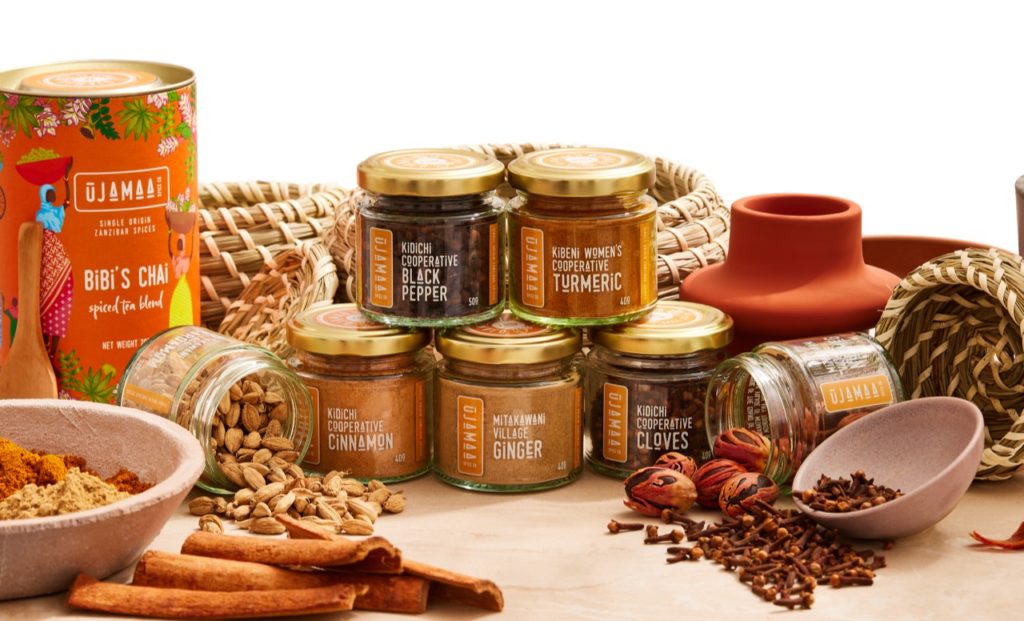Autumn is the season of spice, when it appears in various warming recipes.
However, it seems that the multi-billion-pound trade is in a bit of a mess.
Thankfully, there are people like Edinburgh-based Jawahir Al-Mauly, 29, who tells us about her new and ethical business, Ujamaa Spice.
What's your story?
Ethnically speaking, I am from Zanzibar - born and raised. I also grew up in Toronto, Canada and lived there until the age of 23 when I received my undergraduate degree in International Development and African Studies. This triggered my interest in doing something to support communities back home. I then did an MSc in Social and Cultural Anthropology in Belgium and got to know the COO of Ujamaa Spice, Rist Van de Weyer, whose background was in Agricultural Sciences. We share a passion for improvement in the majority world, specifically in Zanzibar and the agriculture sector. Due to Zanzibar's historical title of the Spice Islands it was a no-brainer for us to support farmers to regain access to western markets. After graduating, we both moved to Scotland - him to pursue a PhD in molecular plant biology and me to gain work experience and start saving for my passion project. With a bit of financial support, his extensive knowledge on agricultural sciences and my background in social sciences and lived experience as a Zanzibari, we felt that we were in the right place to start something.
Life also had other plans for me, including being a mom to a wee three year old.
Because Ujamaa Spice is so young I also work as an on-boarding specialist at a health tech company.
What's wrong with the spice system?
With the current supply chain, we estimate a minimum time frame of two years from when spices leave the farmers to them getting to the consumer. This doesn’t count time on supermarket shelves. They’ll have changed hands multiple times and been mechanically sorted and mixed.
This traditional supply chain is ineffective, but also based on a form of neo-colonialism where concepts of hierarchy and exploitation are still practised.
Ujamaa works directly with farmers and guarantees same year harvest to ensure quality and traceability. It's important that there’s a face behind each product so people realise they’re a human who’s worthy of receiving a sustainable income.
We feel we’re at the forefront of a revolution, similar to what happened to coffee a few years ago. According to Trade Map data, spices are the third most valued import product after coffee and tea in the UK. Since the pandemic, their consumption has grown by over 30 per cent due to perceived health benefits. Many of these spices are of questionable quality.
Do you often travel to meet your farmers?
We’re in Zanzibar regularly, most recently in March. Since our launch on August 10, we’ve almost sold out and are due a visit next week to import the next harvest. It’s important we visit the islands to guarantee quality control and see how our farmers are doing.
When we’re not in Zanzibar, we catch up with them often and it’s not always business related. Sometimes we have casual video calls to share some laughs. To me, Ujamaa Spice is more than just about selling high quality, single origin spices. We also have a story.
Ujamaa means 'togetherness' and 'familyhood'.
What are your bestsellers?
Kidichi Cinnamon, grown in the old private gardens of the first Sultan of Zanzibar. Kibeni Turmeric comes second, grown by our women’s cooperative in a small village right of the northern coast between their bananas, ginger and yams. Our Mitakawani Village Yellow Cardamom is praised for its unique almost citrusy aroma.
Each harvest varies depending on weather conditions and there might be even differences from farm to farm. We embrace the diversity of flavours and shapes that reflect the seasons and terroir. They’re far removed from stale old supermarket versions.
Tell us about Bibi’s Chai
Bibi means grandmother in Swahili, so Bibi's Chai translates to grandmother's chai.
As a Zanzibari who grew up having chai at least twice a day, you can imagine my struggle when I first moved to Canada, Belgium and the UK. I’ve tried many versions but they never invoked the same warmth as Bibi's chai.
Our chai is my grandmother's recipe. Her name was Nuru but we all called her habibti which translates to ‘loved one’ in Arabic.
The spices are sourced from our partner smallholder farmer cooperatives in Zanzibar. The organic black tea comes from a tea estate high up the Usambara Mountains.
In Zanzibari households, dinner is often referred to as chai. Though food is involved, the one constant on nearly every Zanzibari dinner table is the tea. To us, chai forges a sense of community and belonging, and how it’s made is essential in understanding familial identity and heritage.
Anyone who tries a sip of Bibi's Chai seems to immediately fall in love and tell us it's the best they’ve had. I hope I'm doing you proud, habibti!
What's the future?
We are continuously in communication with our farmers to see where we can improve and help them solve environmental issues due to climate change. We are soon expanding our range and might release two more chai blends including a caffeine-free one. We witness firsthand the impact spending a little bit more money on your spices has on people's lives and it really drives us to expand.
On the UK side of things, we hope to relocate to a commercial property in the near future as currently we pack and blend everything at home in our office.
Where are you stocked?
Scottish grocers - Findlay’s, Gull's and New Leaf Co-op in Edinburgh, 5-A-Day Market in Troon as well as in A. Pastry and Jan de Vries in Glasgow. There is a rise in demand from more cafes and bakeries, so keep an eye out.

